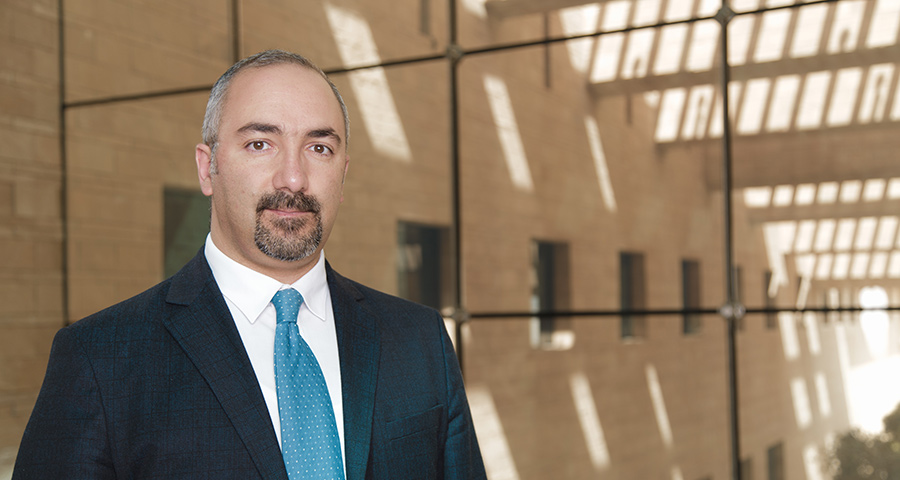
Chadi Aoun on sustainability: “It is about taking an ethical perspective.”
Chadi Aoun was featured in a panel discussion titled, “Maintaining sustainability: Building capacity and breaking barriers,” hosted by the U.S. Embassy Qatar. The webinar was held during Qatar Sustainability Week to showcase local experts and efforts to promote sustainability in Qatar.
Aoun is an associate teaching professor of information systems at CMU-Q and an expert in the area of green information systems, sustainability and smart cities.
During the discussion, Aoun shared his perspective on the end goal of sustainability: “We think about a dichotomy between who we are and nature, but there is no dichotomy. We are nature, we are part of the natural world. Sustainability is tending to a system we are a part of, and that we rely on.”
Although the discussion touched on topics with both local and global relevance, the experts were also asked how they personally became interested in sustainability issues, and how they contribute to sustainability efforts in Qatar.
“I contribute through my research and outreach work in the community, but I think my most important contribution is through education. When I teach my students about sustainability, it amplifies action when students take what they learn, share it with others and implement it in their own lives. I am very thankful and blessed to have that opportunity.”
Aoun’s interest in environmental activism began in his childhood and evolved during graduate studies in Australia. In his doctoral studies, he explored the intersection of information systems and sustainability, which was a new field at the time. Aoun went on to co-create and lead the first special interest group in information systems for sustainability, SIGGreen, which is part of the international Association for Information Systems.
“Knowledge of our impact is the first step; what should follow are actions we take towards sustainability. We want people to see themselves as part of a natural system, to understand how their actions contribute to the system, and to start by making small substitutions that, collectively, will result in a positive impact on this system that we all depend on.”
“It is about taking an ethical perspective and doing what is right for current and future generations.”
